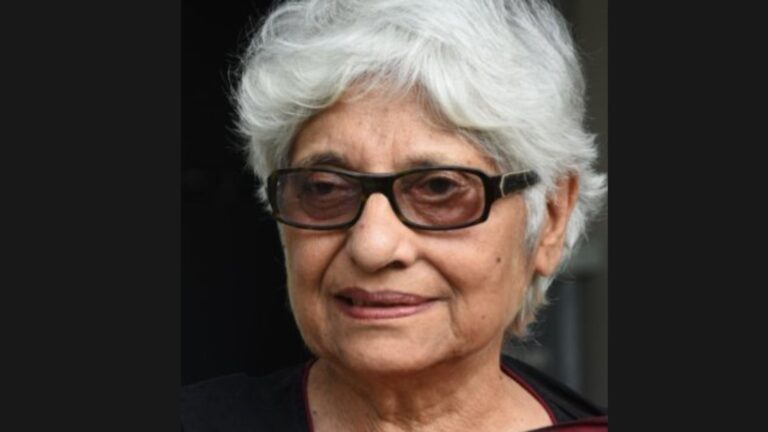The 2024 Lok Sabha elections were aimed at controlling the establishment, political commentator and Indian Express contributing editor Neerja Chowdhury said at the Venkatesh Chapargaonkar Memorial Lecture organised by the Pune Union of Labour Journalists on Saturday.
Choudhury also spoke about his recently published book. How the Prime Minister makes decisions The lecture is named after the late Marathi journalist and is organised every year.
During her speech, Chowdhury described this year’s election as one of the most complicated in India. “For us in Delhi, it didn’t look like much of an interesting election earlier, but as the election unfolded over six weeks, that changed everything. This was an ‘Ankush’ election, it was all about keeping those in power in check,” she said.
Sharing his views on the election results, Chowdhury, drawing on his experience as a reporter on the ground, said, “The ‘400 per’ slogan has spread fear among the people, the elite, the middle class and the intelligentsia.”
She also highlighted the fear among Dalits in states like Rajasthan, Maharashtra, Haryana and Uttar Pradesh that minority reservation would be taken away if the one-party BJP government comes to power. “In Uttar Pradesh, there was agitation amongst the Rajput community by supporters of Yogi Adityanath in their own way. They felt that if this leader comes to power with more strength, he will take Yogi Adityanath to Delhi,” Chowdhury said.

She also spoke about the important role that Uttar Pradesh plays in determining who will form the government, pointing out that the BJP won 71 seats in Uttar Pradesh in 2014, 62 in 2019 and 33 in 2024. Chowdhury stressed that if the BJP had not achieved its tally in Uttar Pradesh in the 2014 and 2019 elections, it would have had to form a coalition government even in those elections, and if it had been able to achieve a similar tally in the state this year, it would have again formed a single-party government. “The number of seats in Uttar Pradesh always makes a difference,” Chowdhury said.
She also spoke about the crucial interview she had with NCP (SP) leader Sharad Pawar on May 4 this year, ahead of the elections. During the interview, Pawar told Chowdhury, “In the coming years, several regional parties will likely align more closely with the Congress. Alternatively, they may explore the option of a merger with the Congress if they feel that is in the best interest of the party.”

About the coalition government now formed, Chowdhury said most of the ministers have been reappointed, all key posts have been taken over by the BJP and Om Birla has been re-elected as Speaker, showing that the prime minister believes continuity equals political stability.
How the Prime Minister is Determined
In October 2023, Chowdhury’s book “How Prime Ministers Make Decisions” was published. He wrote it based on his extensive notes from his time as a journalist. It looks at six Indian prime ministers and their six historic decisions.
These include the strategy Indira Gandhi devised to return to power in 1980 after the humiliating defeat following the 1977 Emergency; Rajiv Gandhi’s lapse in judgement which led to the overturning of the Supreme Court verdict in the Shah Bano case; VP Singh’s act of implementing the Mandal Commission report to save his government which forever changed the face of modern politics; PV Narasimha Rao’s spectacular indecision which led to the destruction of the Babri Masjid; the rapidly changing political landscape which transformed Atal Bihari Vajpayee, an avowed pacifist, into a nuclear hardliner who approved the testing of atomic weapons; and the mild-mannered and professorial Manmohan Singh, widely regarded as one of the country’s weakest prime ministers, who defied interests and opponents within the political establishment to sign the historic nuclear agreement with the US and take bilateral relations to a new level.
Chowdhury said of the book, “I wanted it to be a book for the youth of India, not an academic read.”
© Indian Express Ltd.
First uploaded: 29 Jun 2024 19:55 IST

